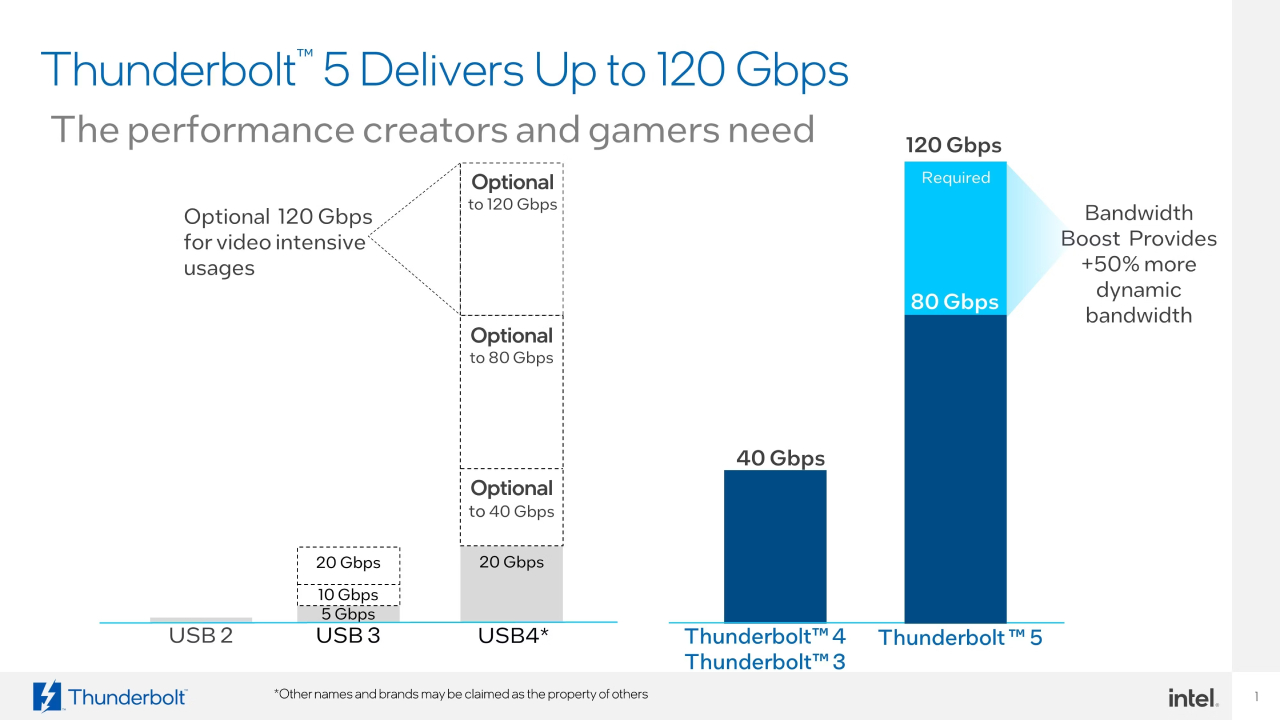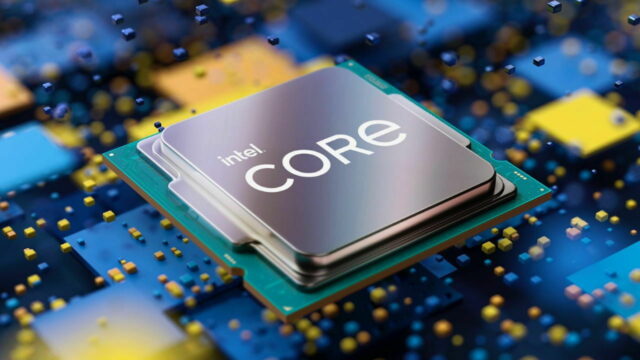Intel has been teasing Thunderbolt 5 for almost a year, and the company has finally unveiled the technology in its entirety. Thunderbolt 5 will offer several advantages, including support for more and faster display options using a single cable, as well as more powerful charging capabilities. With up to three times the bandwidth of Thunderbolt 4, reaching speeds of up to 120 Gbps, Thunderbolt 5 promises improved data transfer speeds and overall performance.
Thunderbolt 5 is significantly faster than its predecessor
The biggest advantage of Thunderbolt 5 is how much data it can transfer using a single USB Type-C cable. With Thunderbolt 5, this is increased to up to 120 Gbps, tripling the 40 Gbps offered by Thunderbolt 4. However, there’s a caveat to note: this bandwidth can only be achieved when using a special transmission mode.

Essentially, Thunderbolt 5 connections have four lanes, each capable of carrying 40 Gbps. In a standard configuration, it will use two lanes in each direction, providing a total bidirectional bandwidth of 80 Gbps, which is twice what Thunderbolt 4 offers.
However, if a scenario demands more bandwidth, such as ultra-high-resolution displays, Thunderbolt 5 can reconfigure the lanes so that all three lanes go in the same direction, allowing your computer to send up to 120 Gbps of data while still receiving 40 Gbps.
This incredibly high bandwidth opens the door to support entirely new display configurations, including up to three 4K displays running at 144Hz. There’s also good news for gamers; Intel is offering promising support for displays that can reach a refresh rate of up to 540Hz.
Another change that comes with it is the ability to charge your computer up to 240W, making it well-suited for laptops that require more power, such as creative laptops or gaming machines. Thunderbolt 4 had a maximum charging rate of 140W, which was more than sufficient for most laptops at only 100W.














